Become Certified
Jump into the underwater world and see what life is like for the fish that grace the waters around the world. Are you planning a hot vacation in the next year? Learn to scuba dive before you go!! Discover what wonders lie in the waters around Yellowknife and beyond. Jeremy provides PADI certified scuba diving instruction in Yellowknife. Current courses being offered are the Open Water Diver, Advanced Open Water Diver and Rescue Diver courses.
About PADI: The PADI System of diver education is based on progressive training that introduces skills, safety-related information and local environmental knowledge to student divers in stages. PADI courses are student-centered and provide maximum practice and realistic application. PADI Professionals make underwater exploration and scuba diving adventures possible while maintaining the highest standards for diver training, safety and customer service.
Diving Courses
Open Water Diver
If you’ve always wanted to take scuba diving lessons, experience unparalleled adventure and see the world beneath the waves, this is where it starts. Get your scuba diving certification with the PADI® Open Water Diver course – the world’s most popular and widely recognized scuba course. Millions of people have learned to scuba dive and gone on to discover the wonders of the aquatic world through this course. To enroll in a PADI Open Water Diver course (or Junior Open Water Diver course), you must be 10 years old or older. You need adequate swimming skills and need to be in good physical health. No prior experience with scuba diving is required.
The Open Water Diver course includes three parts and we are currently offering the Knowledge and Confined Water sections in Yellowknife year round. Once you have completed these sections we can give you a referral letter to do your open water dives on your next vacation within one year. This means you do not waste time on your vacation in a classroom and pool, and can jump straight into the ocean to complete the open water portion of the course. All three components of the course are required to obtain certification. Equipment needed for the knowledge and pool section of the course including fins, mask, and snorkel. All other equipment is provided and included in course fees.
Click here for more information!
600

Advanced Open Water Diver
The PADI Advanced Open Water Diver: you don’t have to be “advanced” to take it – it’s designed to advance your diving, so you can start right after earning your PADI Open Water Diver certification.
The course helps build confidence and expand your scuba skills through different Adventure Dives. You try out different specialties while gaining experience under the supervision of your PADI Instructor. You log dives and develop capabilities as you find new ways to have fun scuba diving. There are two required dives – Deep and Underwater Navigation – and you choose the other three, for a total of five dives.
During the Deep Adventure Dive, you learn how to plan dives to deal with the physiological effects and challenges of deeper scuba diving. The Underwater Navigation Adventure Dive refines your compass navigation skills and helps you better navigate using kick-cycles, visual landmarks and time.
500

Rescue Diver
Scuba divers describe the PADI Rescue Diver course as the most challenging, yet most rewarding course they’ve ever taken. Why? Because you learn to prevent and manage problems in the water, and become more confident in your skills as a diver, knowing that you can help others if needed. During the course, you learn to become a better buddy by practicing problem solving skills until they become second nature. Plus, the course is just fun – it’s serious, but still allows for lots of laughter in between the focused learning.
You also need to have Emergency First Response Primary and Secondary Care (CPR and First Aid) training within the past 24 months. Your instructor may also offer the PADI Emergency Oxygen Provider specialty diver course at the same time.
The PADI Rescue Diver course prepares you to deal with dive emergencies, minor and major, using a variety of techniques. Through knowledge development and rescue exercises, you learn what to look for and how to respond. During rescue scenarios, you put into practice your knowledge and skills. Topics include:
-
Self rescue
-
Recognizing and managing stress in other divers
-
Emergency management and equipment
-
Rescuing panicked divers
-
Rescuing unresponsive divers
500

